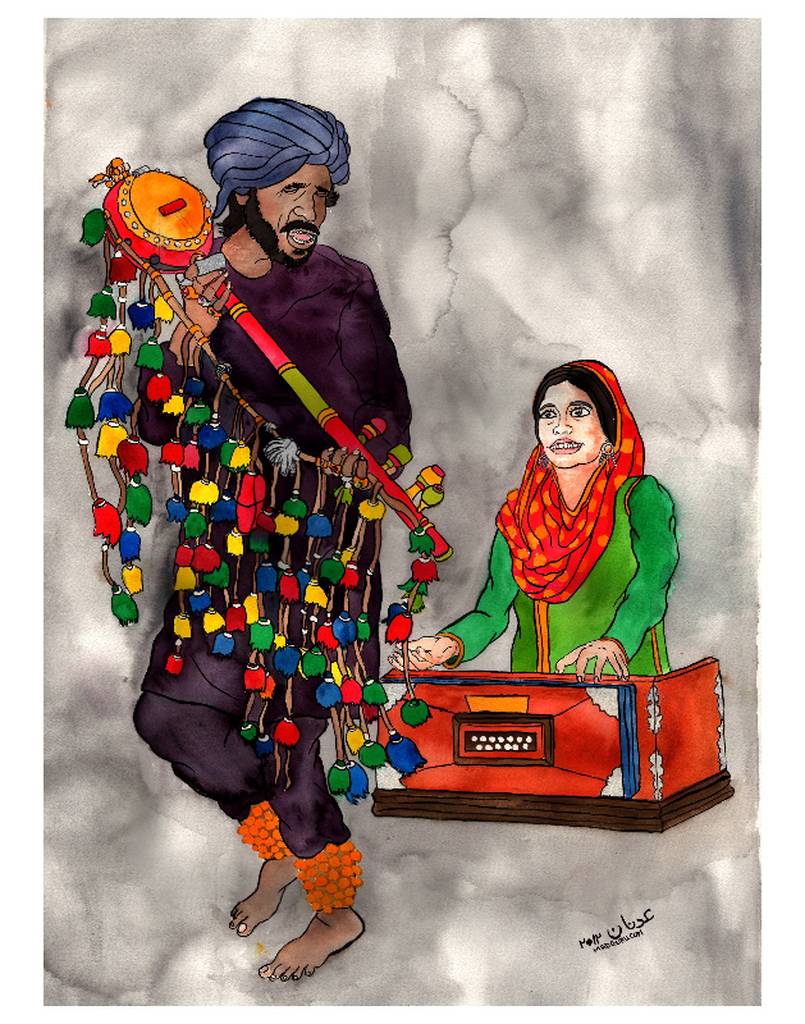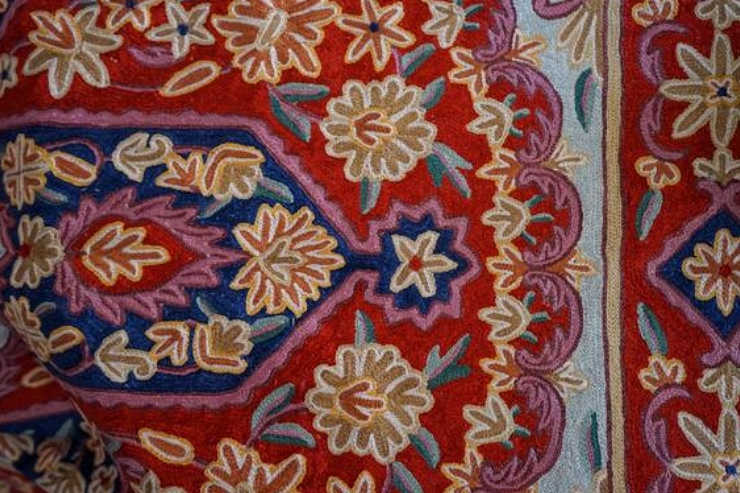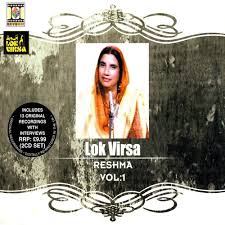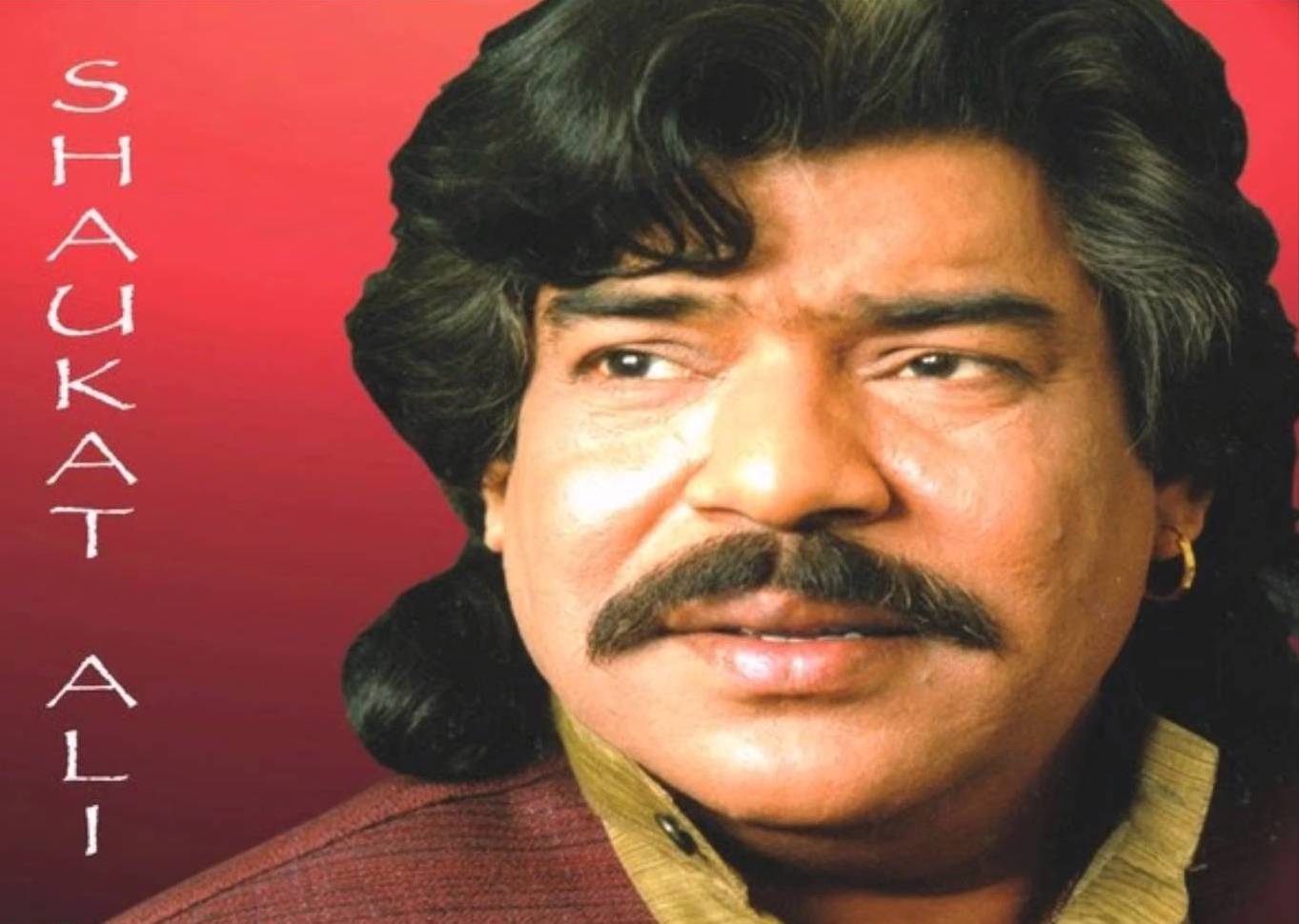
In 2006 the semi-government private Pakistani company Shalimar Recording Company issued a boxset of 57 compact discs titled simply Music Pakistan. Not marketed very well, if at all, it soon disappeared from view without making much of a ripple. More the pity because this hefty chunk of digitised music is a massive contribution to the documentation and preservation of global musics.
Pakistan embodies a contradictory position as far as music goes. It’s many regions, language groups and cultures are the source of some of the most profound and rich folk traditions on the planet. And not just folk. Pakistani classical musicians, though less well known than their Indian counterparts, are among the best in South Asia’s gharana-based music. And yet, the official music industry (which includes private companies, government and private broadcasters and government policy-makers) of Pakistan has demonstrated only the most cursory interest in preserving and promoting this unique heritage.
A commercial bias toward film music and passive aggressive stance towards classical music which was often dismissed as too much influenced by Hindu cultural antecedents was almost completely ignored. Folk music, always popular outside middle class living rooms, was left to its own devices, thriving or shrivelling depending on circumstances and shifting audiences.
Institutions like Lok Virsa Folk Heritage Institute in Islamabad tried heroically to bring to folk artists and their music to a national and international audience but always struggled to cope with restrictive budgets, internal politics and a gargantuan task. In the past decade or so private citizens have made fantastic contributions to reviving classical music by providing venues, events and recording opportunities for the elders as well as a small handful of up-and-comers. The work of Tehzeeb Foundation has been recognised for its quality not just among Pakistani music circles but on the international stage as well. And of course, the efforts of Sachal Studios and the TV hit show Coke Studio to resurrect the careers of Lahore film studio musicians and make folk music palatable to the Millennial Generation respectively are other high points in the revival of interest in Pakistan’s musical heritage.
But so much remains forgotten, undiscovered or simply ignored. The vaults of Pakistan TV and Radio, recording companies EMI and Polydor not to mention private collections and archives controlled by various provincial governments are surely bursting with hours and hours of wonderful music. Will it ever be released? My advice is, do not hold your breath.
Within this context then the Music Pakistan Boxset assumes huge significance. Taken from the vaults of Radio Pakistan, the music on this vast collection covers classical, folk, spiritual (Sufiana), light classical and film music. With some recordings stretching back to pre-Independence its focus is clearly on the 50s-80s. Recent pop music, film music beyond Noor Jehan’s singing, qawwali and music from the smaller ethnic groups are sadly not even touched. Documentation on individual artists is very minimal, the art work lack lustre and information about the tracks (in some instances) less than accurate and inconsistent.
But production values aside the history that is captured in these performances is simply and without exaggeration priceless. In certain cases, the recordings are extremely rare. For anyone with an interest at all in Punjabi, Pakistani, Sindhi, South Asian folk and classical music this collection is absolutely indispensable. One particularly pleasing element of Music Pakistan is the large place given to female singers including: Zahida Parveen, Farida Khanum, Kajjan Begum, Mehnaz, Noor Jehan, Samar Iqbal, Iqbal Bano, Khurshid Begum, Mussarat Nazir and others. Among the rare recordings are some early post-Independence performances by Ustad Bundoo Khan (sarangi) and Nazakhat and Salamat Ali Khan as young boys.
Sadly, some of the CDs (such as the Nazakhat/Salamat one referred to above) were poorly produced and unplayable! That frustrating inattention to quality and details that characterises bureaucracies with little interest in the work they are charged to carry out!
I was given a copy of the box set soon after it was released by a dear friend and over several years and several blogs have shared them with the wider world. Throughout this process I have never once felt guilty about doing so, rather have viewed my efforts as altruistic: promoting and keeping alive a rich and diverse tradition of folk and classical music. You might be able to find some of these CDs elsewhere on the internet but you’re unlikely to find so many in one place. And while there are outlets that claim they will sell you the full boxset, I’ve not yet found place that actually will. You will receive either an ‘Out of Stock’ message or be met with total silence.
Of the 57 original CDs I’ve managed to digitise 46. I’ve made a 47th out of several stray tracks from original CDs that were poorly produced. Sadly, that leaves 10 of the original, including ghazals by Barkat Ali Khan, light classical performances by Amanat Ali Kasuri and several others by artists I’ve lost track of. [Confession: it took me a couple years before I understood exactly what I held in my hands and in that time I tossed out CDs that didn’t work! Fool that I am!]
I am trying, through my contacts to get hold of the outstanding 10 CDs and of course will share them if and when I do. But again: do not hold your breath.
Rather than lament on what is missing I invite you to drink deeply of what IS available.
Here are links to all 47 plus 1 CDs.
I have given each a serial number that does NOT correspond to the original. That is for personal reasons of no particular consequence. Simply my way of keeping track of this vast and amazing collection.
- Ustad Umeed Ali Khan [Raga Kafi Kannada and Raga Emen]
- Mohammad Tufail Niazi [Punjabi Folk Songs]
- Salamat Ali [Urdu Ghazals]
- Ustad Mohammad Sharif Poonchwaley [Classical Sitar] Vol. 1
- Sadiq Ali Khan Mando and Master Sohni Khan [Classical Clarinet]
- Roshan Ara Begum [Raga Mian ki Malhar, Raga Neki Kannara and Raga Maru Sarang]
- Mai Bhaggi [Thar Folk Songs]
- Ustad Amanat Ali Khan [Urdu Ghazals]
- Ustad Nathoo Khan [Classical Sarangi]
- Hamid Ali Bela [Punjabi Sufi Kalam]
- Alam Lohar [Punjabi Folk Songs]
- Ustad Nazakhat Ali Khan and Ustad Salamat Ali Khan [Raga Abhogi Kanhra and Raga Kamod]
- Ustad Bundoo Khan [Classical Sarangi]
- Musarrat Nazir [Punjabi Folk and Pop]
- Noor Jehan [Film Hits Vol. 1] and [Vol. 2]
- Saeen Ditta Qadri [Classical Flute/Bansuri]
- Ijaz Hussain Hazarvi [Punjabi Ghazals]
- Farida Khanum [Urdu Ghazals Vol. 1]
- Farida Khanum [Urdu Ghazals Vol. 2]
- Mukhtar Begum [Ghazals, Dadra and Thumri]
- Saeen Marna and Munir Sarhady [Iktara and Sarinda]
- Mohammad Jumman and Allan Faqir [Punjabi Folk]
- Reshma [Thar Folk Songs]
- Ustad Munawar Ali Khan [Classical Vocal]
- Iqbal Bano [Thumris]
- Ustad Amanat Ali Khan and Ustad Fateh Ali Khan [Raga Bageshri, Raga Multani, Raga Gujri Todi and Raga Pooria]
- Ustad Amanat Ali Khan and Ustad Fateh Ali Khan [Raga Des, Raga Barbari, Raga Megh, Raga Malkauns and Raga Kedara]
- Iqbal Bano [Urdu Ghazals Vol.1]
- Iqbal Bano [Urdu Ghazals Vol.2]
- Abida Parveen [Sufi Kalam]
- Pathane Khan [Punjabi Sufi Kalam]
- Ustad Mohammad Sharif Khan Poonchwaley [Classical Sitar Vol. 2]
- Faiz Mohammad Baloch [Balochi Folk Songs]
- Mehnaz and Kajjan Begum [Folk Songs]
- Suriaya Multanikar [Punjabi Folk Songs]
- Kheyal Mohammad [Pashto Folk Songs]
- Ustad Misri Khan Jamali [Alghoza Folk]
- Hamid Ali Khan [Urdu Ghazals]
- Ghulam Ali [Urdu Ghazals Vol. 1]
- Ghulam Ali [Urdu Ghazals Vol.2]
- Mehnaz Begum [Urdu Ghazals]
- Mehdi Hassan [Urdu Ghazals Vol. 1]
- Mehdi Hassan [Urdu Ghazals Vol.2]
- Ustad Habib Ali Khan [Classical Been]
- Various Artists [Folk Sampler]
- Zahida Parveen [Sufi Kalam]
- Miscellany [Ustad Amanat Ali Khan Kasuri; Roshan Ara Begum; Bashir Ali Mahi]
- Ustad Barkat Ali Khan [Urdu Ghazals]
- Ustad Shaukat Hussain Khan [Classical Tabla]
- Various Artists [Classical & Light Classical Vocal]
- Bashir Ali Mahi [Light Classical Vocal/ thumri]
- Various Artists [Rare Classical Recordings]
- Ustad Bade Ghulam Ali Khan [Classical Vocal]
- Ustad Nazakhat Ali Khan and Ustad Salamat Ali Khan [Classical Vocal]
- Roshanara Begum [Classical Vocal]
- Various Artists [Classical Vocal]
NOTE: AS AND WHEN THE 10 MISSING DISCS ARE DISCOVERED THEY WILL BE ADDED TO THIS LIST. IF ANYONE IS ABLE TO TRACE ANY OF THEM PLEASE LET ME KNOW.








